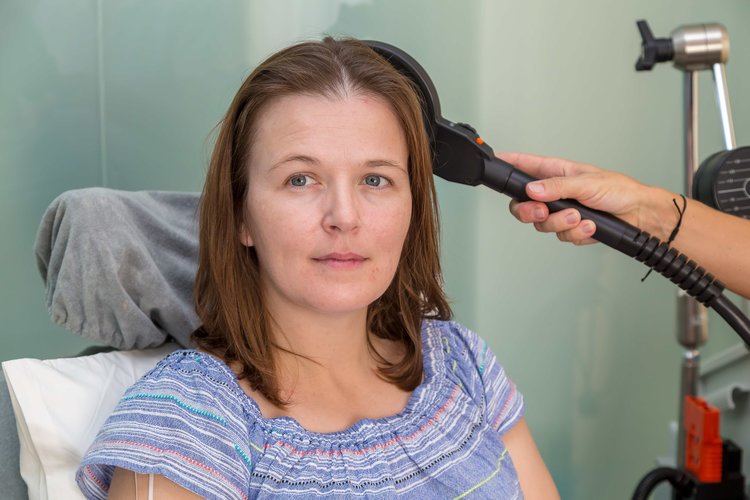Most patients experience no problems with TMS. In general, it is well-tolerated and associated with few side-effects. Only a small percentage of patients discontinue treatment because of the side effects most common of which is a mild headache. It generally diminishes over the course of the treatment or can be treated using over-the-counter pain medication.
TMS magnetic field may activate the scalp of facial muscles. In some patients, this may result in painful scalp sensations or facial twitching. In these cases to reduce discomfort, treatment can be modified by adjusting coil positioning and stimulation settings. Often these sensations tend to diminish over the course of treatment.
TMS machine produces a loud noise and, like in the MRI machine, earplugs are given to the patient to use during the treatment. Patients may however still complain of hearing problems immediately following treatment. No evidence suggests these effects are permanent if earplugs are worn during the treatment.
TMS has not been associated with many of the side-effects caused by antidepressant medications, such as sexual dysfunction, weight gain, gastrointestinal upset, dry mouth, or sedation. Treatment protocol requires that patients should not drink 24 hrs before the treatment and should not dye hair as it may contain metallic particles that may potentially interact with the magnetic field.
The most serious risk of TMS detected during FDA trials is seizures. It is however exceedingly low and proving this has been one of the FDA approval criteria. As a result, the
TMS treatment procedure is designed to minimize the risk of seizures. It is important to point out that while TMS is a safe procedure because it is a new treatment, there may be unforeseeable risks that are not currently recognized.
